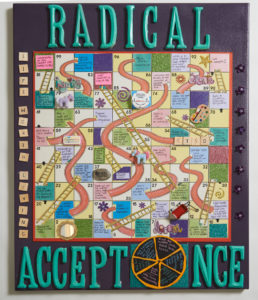Teen avoidant behaviors—even if they are driven by depression or anxiety—make many mental health problems worse. There can be a “snowball effect.” Avoiding one situation leads to avoiding another, and another, until the teen effectively shuts down.
Read More >>Lead nurse at the Skyland Trail adolescent treatment program, Trudy Farkas, RN, uses her skills and compassion to care for teens ages 14 to 17.
Read More >>What is a dual diagnosis treatment program? A dual diagnosis treatment program helps people who have a substance use disorder and one or more co-occurring psychiatric diagnoses, including a mood disorder like major depression or bipolar disorder, an anxiety disorder, schizophrenia or another thought disorder, or a personality disorder. Therapies and programs are structured to…
Read More >>Learn more about Carlyle Bruce, Ph.D., Director of Psychological Services and family therapist at the Skyland Trail adult residential treatment program. How long have you been at Skyland Trail? “I have been at Skyland for 10 years.” What made you want to go into the mental health field? “I really enjoyed talking to others, and—though…
Read More >>Take a few moments to learn more about Skyland Trail psychiatrist, Adam Meadows, MD. Dr. Adam Meadows is a board-certified psychiatrist whose clinical interests include mood disorders, adult ADHD, and mental health concerns affecting college and graduate students. Dr. Meadows previously served as the medical director of psychiatry and behavioral health for WellStar Health System…
Read More >>In order to fully understand how to best treat mental illness, we must first understand the factors that can cause mental illness, specifically the balance between nature and nurture. It’s important to remember that psychiatric conditions are medical problems that deserve the same kind of attention, research, and treatment as any physical ailment. What Causes…
Read More >>Taking care of yourself—both physically and mentally—is an important part of overall wellness. The idea of self-care has grown in popularity in recent years, filling social media timelines and news feeds with tips and tricks. Self-care activities can be great tools for anyone looking to manage stress, be more aware of their feelings and emotions,…
Read More >>In psychiatry, OCD is sometimes referred to as “the great imitator” because the behaviors of someone with OCD can look like symptoms of many other disorders. Psychiatric evaluation by a mental health professional is a crucial first step to ensure patients with OCD receive an accurate diagnosis and are matched with an evidence-based treatment plan. OCD is a chronic illness. By engaging in evidence-based mental health treatment, individuals with OCD can control the symptoms and manage the associated disability.
Read More >>Skyland Trail has joined a small group of residential psychiatric treatment organizations that are leading the field in integrating nicotine and tobacco cessation with behavioral health treatment and will contribute to a growing body of evidence and best practices for helping clients simultaneously learn to manage psychiatric symptoms and adopt skills and strategies for long-term health and wellness.
Read More >>DBT teaches that the only way to end suffering, which occurs as a result of pain and non-acceptance, is to accept reality and face the pain head on. Learn three reality acceptance skills that can help individuals find respite from suffering.
Read More >>









